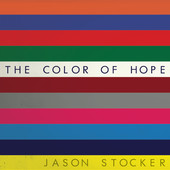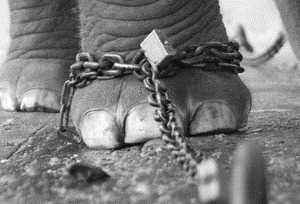 If you’re anything like me, you’ve been more than a little miffed since about the turn of the millennium with how common it has become for worship leaders to release entire of albums of songs that were written by other people and have already been released elsewhere. Especially when they barely even change the arrangements.
If you’re anything like me, you’ve been more than a little miffed since about the turn of the millennium with how common it has become for worship leaders to release entire of albums of songs that were written by other people and have already been released elsewhere. Especially when they barely even change the arrangements.
Ok, I’m glad I got that off my chest.
But seriously, it has somehow become a refreshing change of pace for a worship leader to actually write music.
Which is why, when I first heard Jason Stocker’s sophomore release, The Color of Hope, and realized that it was not only all original, but also contained only two songs that were technically “worship songs,” I was more than a tad thankful.
Since his 2007 release The Perfect Day, Stocker has clearly matured artistically. Where The Perfect Day gave us some quality congregational worship tracks offset by quiet, contemplative moments, The Color of Hope explores the joy, pain, and profound confusion of death, complicated relationships, searching for God, and moving on. And at each point, he asks the question, What does hope look like now?
For me, the most profound moment on the record comes on “Fade Away,” which, like “When I Close My Eyes” and “I’m Just Afraid I’m Losing You,” explores a singular moment, a singular phase of Stocker’s grief in the wake of the sudden loss of his father 14 years ago. The vocal track, which was recorded in a single take, retains the raw emotion and vulnerability that motivated its composition so long ago, and like all great artistic expression, it gives me a window into one man’s moment of unique suffering, thus offering the opportunity for the cathartic release of my own. The track’s cracking, tentative musicality assures me in my own moments of grief that I am not alone in wondering why God seems so often to show up too late.
Where “Fade Away” bares the soul of sudden grief in all its confusion, anger, and despair, “I’m Just Afraid I’m Losing You” revisits that same grief years later, when memories have begun to fade and moments of shouldn’t I be over this by now? have become commonplace. The reference to being “buried alive” borrows from an episode of Monk in which Tony Shalhoub’s character works to sort through the complicated emotions of being years removed from the death of his wife. It seems to me that Stocker is right on here – sooner or later, we’ll all be buried alive. And someday, years and years later, we’ll be fine, even if it’s not until heaven. But it’s that long journey between the two that nearly kills us. And that deadly middle ground is where so many of us live.
“10 Years,” the fourth track, is Stocker’s unapologetic exaggeration of what a ten year reunion might look like for a man who had been more than a little obsessive over his high school flame and never really gotten over losing her. Thinking about Stocker paging through an old yearbook while he wrote the lyrics makes me grin every time I listen to it.
“Free,” which follows “10 Years,” explores the awkward powerlessness of trying to decide what to do when the divorce you didn’t ask for is finalized, and stands as an anthem of sorts for those who refuse to believe that life is over once it gets tainted by our own mistakes or the mistakes of others.
“Another Holiday,” which was written about the tentative early stages of Stocker’s relationship with his now wife Krista, gives voice to the insecurities of a man wondering whether he’ll be quite enough to make her happy, and whether it’s worth the risk to try.
And a few tracks later is “Butterflies,” a wedding song that brilliantly pairs several unexpected lyrical moves with instrumentation that could very well be the soundtrack for the flight of a butterfly.
For me, the two most sing-able tracks are “When I Close My Eyes,” which was the first single, and “Be Still and Know,” which you may swear is a cover because it’s so dang catchy that you’ll think it’s that favorite song you haven’t heard in years and forgot about. Stocker says his daughter makes him sing it to her every single night before bed, and its placement right before “Fade Away” may create something of a shock to your system, but to the attentive listener the pairing becomes an insightful juxtaposition of a young girl’s hope in an unknown future and an older man’s more melancholy hope despite a still-too-fresh, painful past.
“Hold On,” which appears exactly in the middle of the album, celebrates the hope of perseverance – those moments of chaos and failure in which holding on is the only option for survival. Birthed out of the morning a friend of Stocker’s woke up next to a woman he didn’t recognize after a night of excessive drinking and had to decide how to approach his wife about it, the song is a challenge to stand up and take responsibility for creating a brighter future despite the temptation to give up in the wake of profound failure. It also begins with Stocker’s own favorite moment on the record, a guitar riff that, he says, “sounds like a T-Rex.”
And finally, the “bookends” of the album, “Sing Your Melody” and “Run,” are the two congregational worship songs Stocker chooses to include, which seems quite appropriate given the album’s theme. Hope begins with commitment and faith, and “Sing Your Melody” asks God to grant the courage to tell the truth about God, life, and hope, which is exactly what Stocker does in the tracks that follow. The rising choral finish of “Run” not only brings in a welcome gospel feel to the conclusion of the album, it also serves as a doxology, sending us out with the kind of hope that reminds us that, regardless of the mire of our histories, we were made to run. And running always faces us forward, into the future.
Hope, it seems, is not a monochromatic virtue. Though it may be tempting to seek a hope that ignores the messiness of being human, true hope, the kind of hope the God of the Bible offers us, incarnates itself in even our darkest moments. And frankly, any other hope is only a sham, for if hope does not have the vitality to reach into the tar of grief and failure and pull me out into the light, what can it possibly do for me?
The album can be purchased here.

